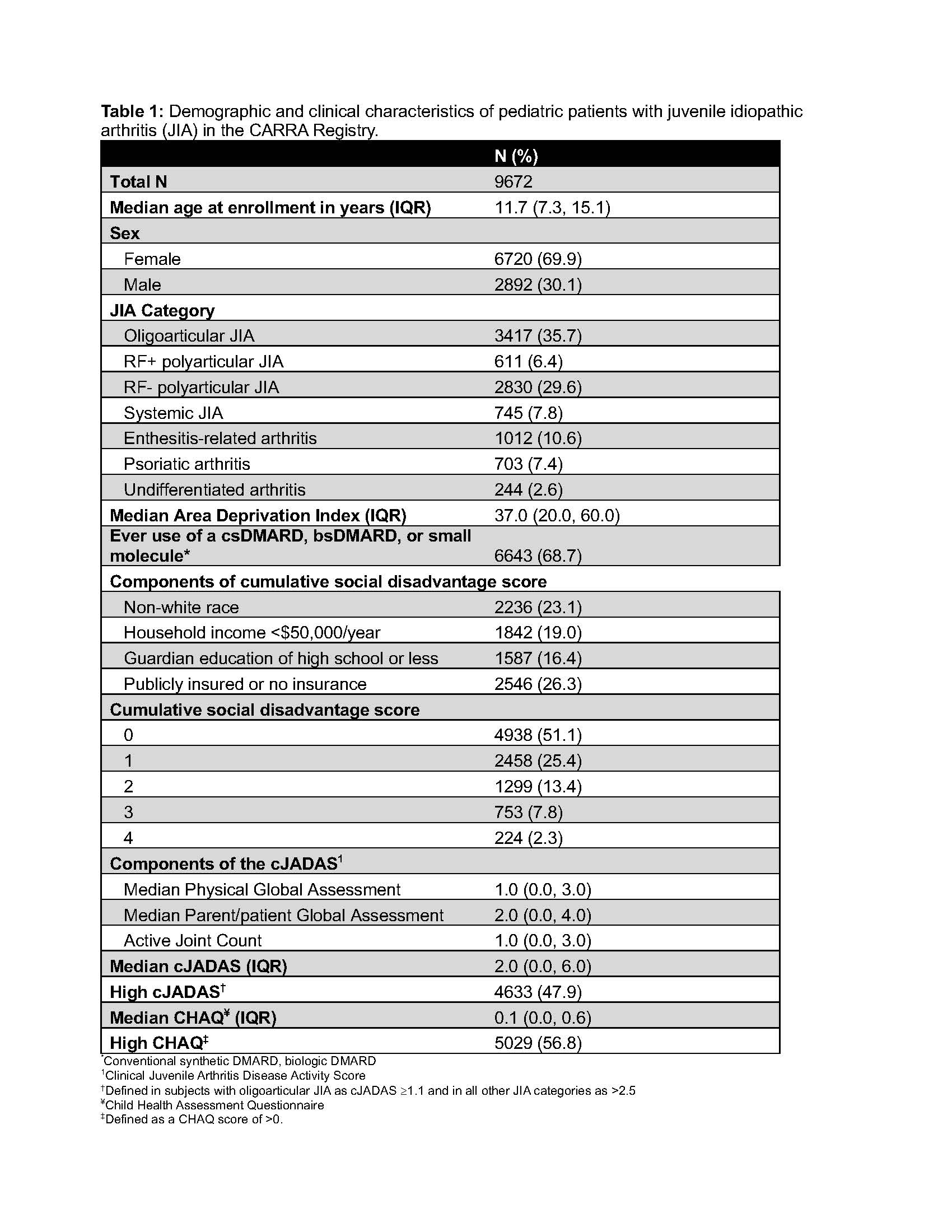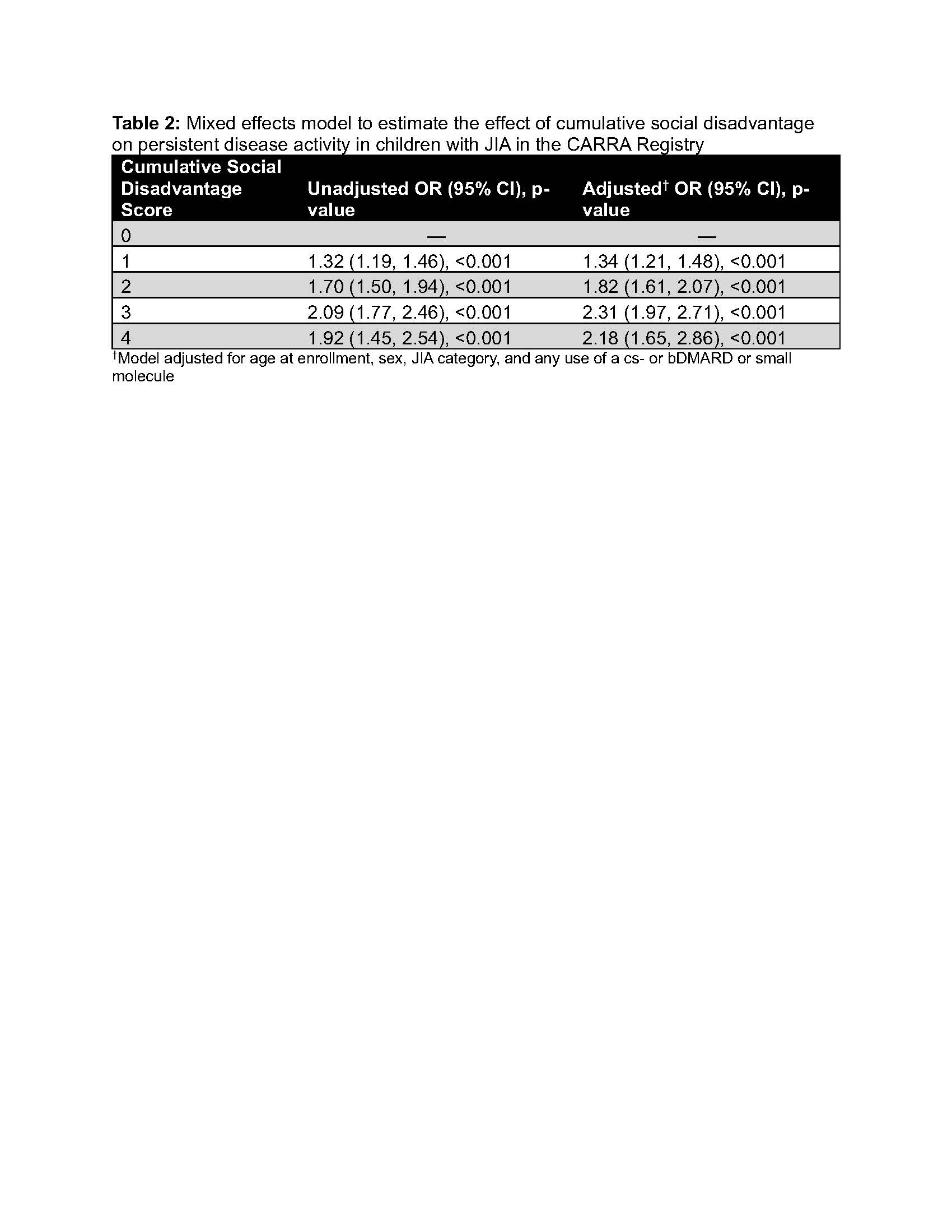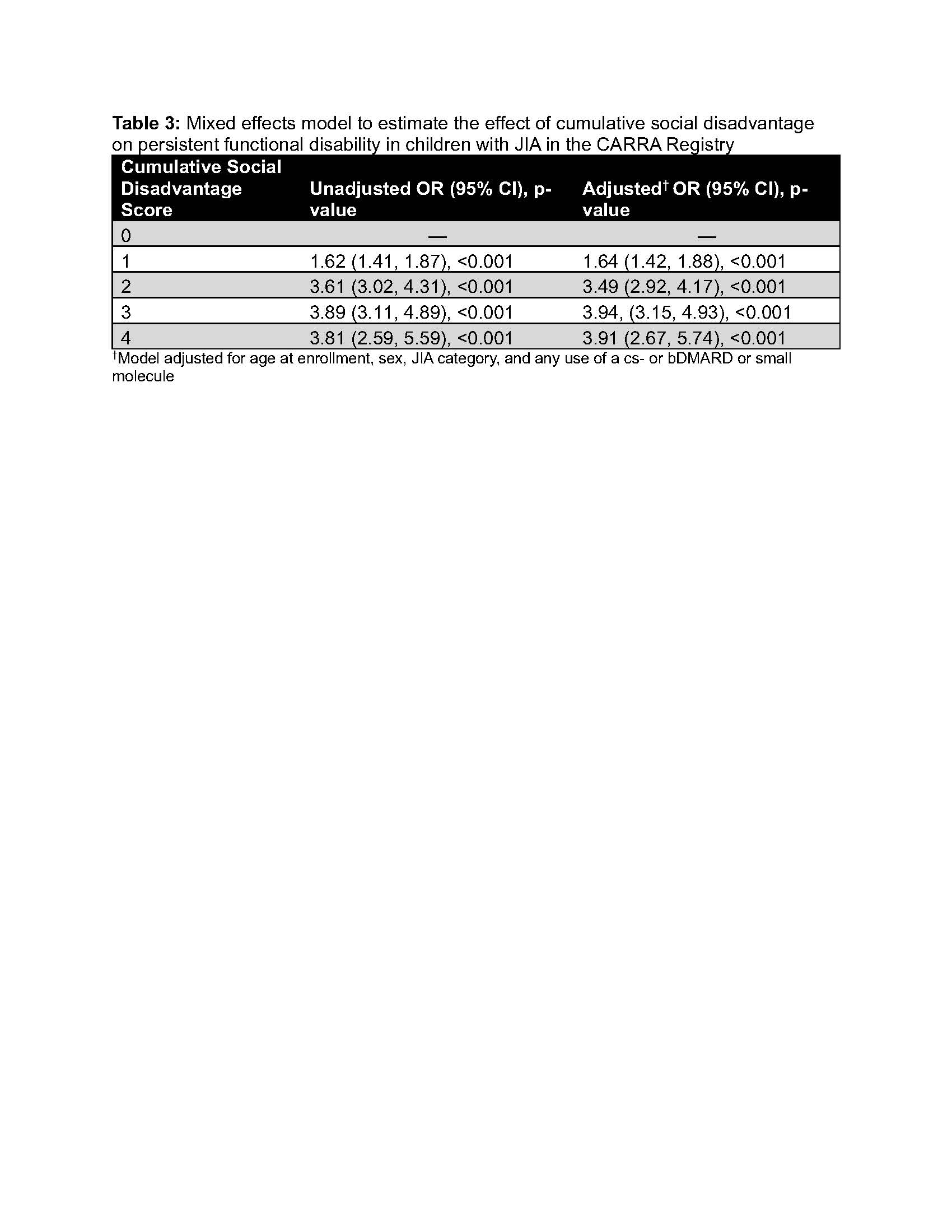Session Information
Session Type: Abstract Session
Session Time: 4:00PM-5:30PM
Background/Purpose: The impact of race and social determinants of health (SDoH) on health outcomes in juvenile idiopathic arthritis (JIA) remains poorly understood. Prior disparities research in JIA has largely analyzed these complex, intertwined social variables as independent risk factors and have reported inconsistent results of their impact on clinical outcomes, such as joint damage, pain, and disability. These inconsistencies may result from a failure to investigate interrelationships between social variables. A recent analysis demonstrated an association between cumulative social disadvantage and childhood arthritis using a combined score. In this analysis of the Childhood Arthritis and Rheumatology Research Alliance (CARRA) Registry, we used a similar method to investigate the effect of cumulative social disadvantage on disease activity and functional disability in JIA.
Methods: This is a cohort study of subjects with JIA enrolled in the CARRA Registry between July 2015-January 2022 with at least one Registry visit including all components of the clinical Juvenile Arthritis Disease Activity Score (cJADAS) and Child Health Assessment Questionnaire (CHAQ) score. A cumulative social disadvantage score was created, with a score of 1 given for each of the following: income (household income < $50,000/year), guardian education (high school or less), insurance (public insurance or none), and non-White race. Any missing components were given a score of 0.Univariate and multivariable logistic regression models, adjusted for age at enrollment, sex, JIA category, and any use of a conventional (cs-), biologic (bs-) DMARD, or small molecule, were used to estimate the odds of persistent disease activity (oligoarticular JIA – cJADAS ≥1.1; all other categories >2.5) and functional disability (CHAQ score > 0).Random effect was included in the regression models to account for repeated measures.
Results: 9,672 subjects with JIA were identified (Table 1).Oligoarticular and RF- polyarticular JIA were the most common JIA subtypes reported. The majority of cohort required DMARD treatment (68.7%).48.9% of the cohort had exposure to at least one variable associated with the combined score.47.9% of patients were classified as having high cJADAS, and 56.8% had a high CHAQ score. In both unadjusted and adjusted analysis, cumulative social disadvantage with higher odds of active disease, highest for a score of 3 (Table 2 – adjusted odds ratio [aOR] 2.31, 95% CI: 1.97-2.71), and functional disability, also highest for a score of 3 (Table 3 – aOR 3.94, 95% CI: 3.15-4.93).
Conclusion: Cumulative social disadvantage was associated with higher odds of active disease and functional disability compared to those not experiencing these exposures among JIA subjects in the CARRA Registry. Exposure to multiple variables associated with social disadvantage confers higher risk of poor outcomes in JIA. To mitigate these disparities, targeted social risk screening adopted within pediatric rheumatology clinics should be studied as a potential intervention to identify at-risk patients who may benefit from social network support or other programming, such as patient navigation services.
To cite this abstract in AMA style:
Soulsby W, Lawson E, Boscardin J, von scheven E. Cumulative Social Disadvantage Is Associated with Disease Activity and Functional Disability in Juvenile Idiopathic Arthritis: An Analysis of the CARRA Registry [abstract]. Arthritis Rheumatol. 2023; 75 (suppl 9). https://acrabstracts.org/abstract/cumulative-social-disadvantage-is-associated-with-disease-activity-and-functional-disability-in-juvenile-idiopathic-arthritis-an-analysis-of-the-carra-registry/. Accessed .« Back to ACR Convergence 2023
ACR Meeting Abstracts - https://acrabstracts.org/abstract/cumulative-social-disadvantage-is-associated-with-disease-activity-and-functional-disability-in-juvenile-idiopathic-arthritis-an-analysis-of-the-carra-registry/



